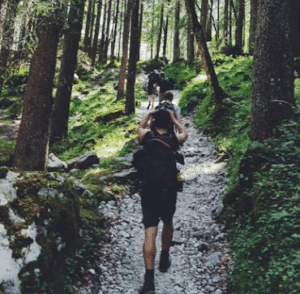Traveling is an enriching experience that allows us to explore new cultures, meet new people, and see the world from a fresh perspective. However, being a tourist comes with a responsibility to ensure that we respect the places we visit and the people that call the place home.
Here’s 10 tips of how you can be a good tourist and contribute positively to the places you travel.
1. Respect Local Laws and Customs
Every country has its own unique laws and customs, and it is important to familiarize yourself with them before arriving. Something that may be acceptable in your home country might be considered disrespectful or even illegal elsewhere. For example, in some countries like Singapore, public displays of affection are frowned upon, with actions like, chewing gum or littering can result in hefty fines.
Another key example is road rules. If you intend to drive or ride a motorbike in the country, ensure you are correctly licenced and have sufficient experience Researching and following local laws not only keeps you out of trouble but also shows respect for the community.

2. Be Mindful of Cultural Differences
Culture varies greatly across the world, and what is normal in one place may be offensive in another. Simple gestures, like pointing with a finger or showing the soles of your feet, can be considered rude in certain cultures. For example, In Italy, ordering a cappuccino after breakfast can raise eyebrows, as locals generally only drink it in the morning, while in Japan, slurping noodles is a sign of appreciation.
Learning about basic cultural etiquette, such as appropriate greetings, dress codes, and dining customs, helps you avoid unintentionally offending locals and makes your interactions more meaningful.

3. Learn Basic Local Phrases
Even if you don’t speak the language of the country you’re visiting, learning a few basic phrases can go a long way in showing respect. Simple words like “hello,” “thank you,” and “please” in the local language can make a difference in how you are received by locals. For instance, in France, greeting shopkeepers with “Bonjour” before asking for assistance is considered polite.
Unlike 20 years ago, there is no need to carry a dorky phrasebook around. Youtube has many excellent and free resources available to help you learn the basics.

4. Support Local Businesses
Tourism can be a great boost to the local economy, but only if travelers choose to spend their money wisely. Instead of dining at international chains like McDonalds or shopping at large corporate stores, try supporting local restaurants, markets, and artists.
For example, buying souvenirs from a small shop rather than mass-produced items from an airport gift store ensures your money stays within the community. If you enjoyed the place, leaving a positive review on Tripadvisor, Facebook and Google Reviews can be invaluable.

5. Respect Natural Environments
Many destinations are popular due to their stunning landscapes and natural beauty, but mass tourism can take a toll on the environment. Whether you’re visiting a national park, beach, or hiking trail, be sure to leave no trace. Avoid littering, respect wildlife, and stay on designated paths to prevent damage to fragile ecosystems.
If snorkeling or diving, avoid touching coral reefs and marine life to help preserve underwater habitats.

6. Be Aware of Your Impact on Local Communities
Over-tourism is a growing problem in many popular destinations. Some cities and villages become overcrowded with tourists, which can drive up prices, put pressure on infrastructure, and make life more difficult for locals. Be mindful of how your presence affects the community.
Traveling during off-peak seasons, avoiding overcrowded areas, and being respectful of local spaces can make a significant difference. In cities like Venice, where tourism causes congestion, opting for guided tours with local experts or traveling off the beaten path can ensure a more thoughtful and less disruptive visit.
7. Dress Appropriately
What is considered acceptable attire varies from place to place. In some countries, modest dressing is expected, particularly in religious or rural areas. For example, in many Middle Eastern and Asian countries, covering shoulders and knees is required when visiting mosques or other religious sites.
Before visiting a destination, check what kind of attire is appropriate and dress accordingly. This shows respect for local traditions and ensures you don’t accidentally cause offense. For woman, carrying a scarf practical way to quickly adjust your outfit when needed in more conservative parts of the world.

8. Ask Before Taking Photos
While it’s tempting to snap pictures of everything you see, it’s important to be mindful when photographing people, sacred sites, or private properties. Always ask for permission before taking photos of individuals, especially in cultures where it might be considered intrusive or disrespectful. In some places, such as indigenous communities or rural villages, photography may be restricted or require a small donation.
Some places even have restrictions on photography, like certain temples or military areas, so be sure to check before capturing the moment. If intending to take a drone, be sure you check restrictions and import/export laws.
9. Be Polite and Patient
Traveling to a new country often means encountering different ways of doing things, which can sometimes be frustrating. Whether it’s long lines, slow service, communication barriers or overly bureaucratic systems. Being patient and polite goes a long way!
A smile and a positive attitude can make interactions smoother and leave a good impression on the locals you meet. In places like Italy, where meals are served at a slower pace than in fast-paced Western cultures, embracing the leisurely dining experience rather than rushing can lead to a more enjoyable and authentic experience.
10. Give Back to the Community
If you have the opportunity, consider giving back to the places you visit. This could mean participating in a local volunteer program, donating to community projects, or simply making responsible travel choices, such as staying in eco-friendly accommodations.
For instance, if you visit an area recovering from a natural disaster, choosing to stay at locally owned hotels or eating at family-run restaurants helps the community rebuild. Even small actions, like picking up litter on a hike or choosing ethical animal experiences such as not riding Elephants in Thailand, can contribute to sustainable tourism. If you are in the country long term, consider other aspects of how you can help out such as volunteering teaching English or donating blood.
Final Thoughts
Being a good tourist is about more than just having a great time; it’s about respecting and appreciating the places and people that make each destination special. When abroad you are being judged and are on display.
By following these 10 tips, you can ensure that your travels are enriching, enjoyable, and beneficial for both yourself and the communities you visit. Traveling responsibly helps create a better experience for everyone and ensures that these incredible destinations remain welcoming for future generations.